Black influencers join together to carve out a space for their work to be valued
In two mansions in Atlanta, 35 Black creators are going viral.
Last month, at a mansion in Atlanta called the Collab Crib, a group of creators is hoping to shake things up.
The group was putting together their own rendition of the “Buss It” challenge. Having recently gone viral on TikTok, the challenge had caught the attention of celebrities like Gabrielle Union and Chloe Bailey, each dropping it at the “Buss It” line of Erica Banks’ song.
These creators are only some of the 35 people who live between two mansions -- Collab Crib and Valid Crib. They’re comedians and actors, and singers and dancers. Altogether, they have amassed billions of views on their social media platforms.
“When you try to explain it, it really sounded like a cheat code,” said Noah Webster “Because it’s like, how do you pull this off? But really, it’s just honestly, because we’re in the future now, social media… Everybody [is] on TikTok, Instagram. If you’re not, what are you doing?”
Following the country’s racial gut check last year, the fight for equality hasn’t stopped. On social media, sometimes without even realizing it, influencers of color like those at Valid and Collab have been taking back the narrative of online ownership and credit for one’s work -- and the financial rewards that come with going viral, too.
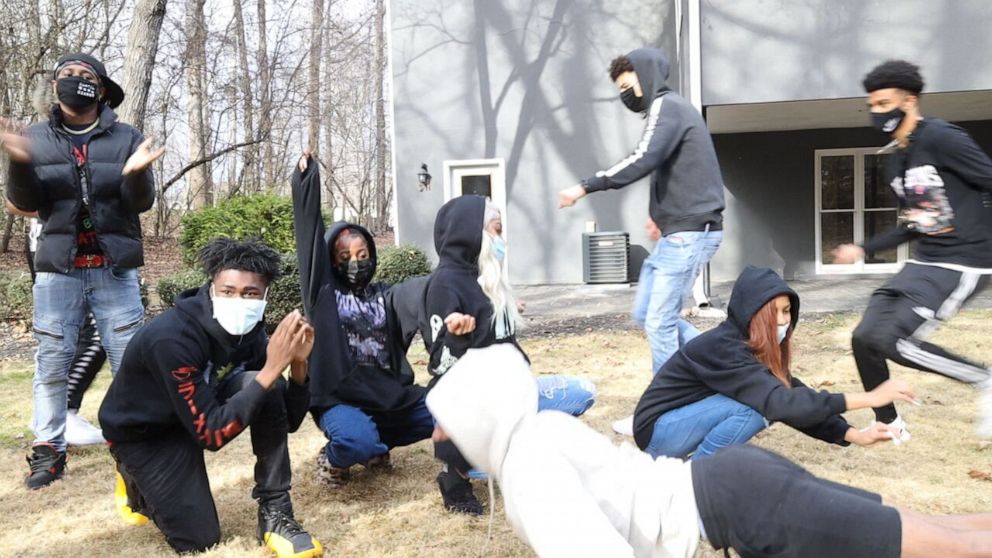
Having followed the social media industry since YouTube was in its infancy, Dorsey is keenly aware of the demand and value or content. So, why not create a house for creating content?
“We have social media celebrities that come together to make content via their Instagram, their YouTube, their TikToks… These days, a lot of companies and brands want and need content,” Dorsey said. “When we would travel together. We would get together in different Airbnbs and different houses in other cities, and we noticed that their numbers would grow like crazy when they were together just in a short period of time. So I said, what if we just lived all together?”
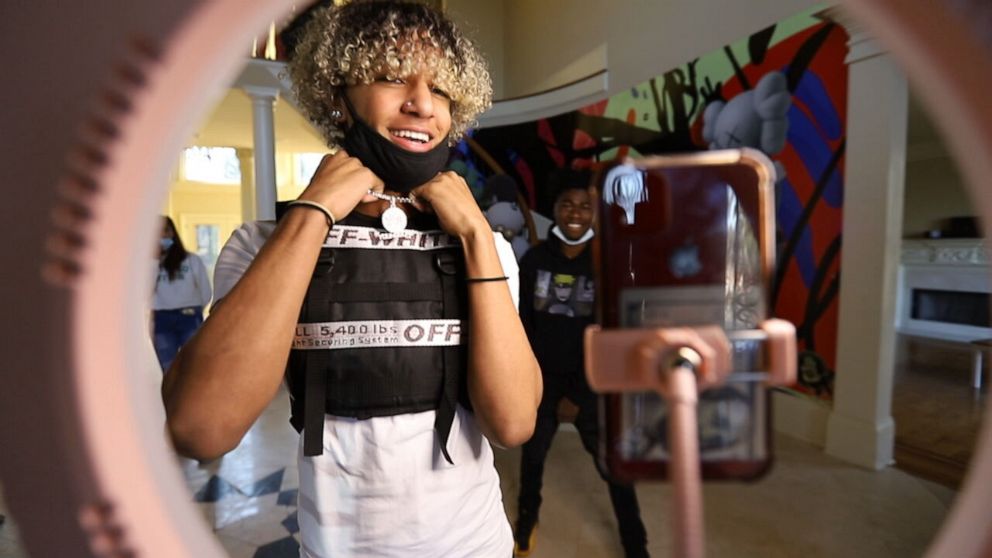
Between both houses, the average age of the creators is barely 20. With over 14 million followers and over 360 million likes, brands have taken notice.
Of the two houses, Valid Crib began organically via a group chat started by best friends Devron Harris and D’Aydrian Harding.
“I knew, over time, as we kept gradually adding more people to the group chat … I was looking at everybody’s content, [and] everybody in our group is actually funny,” said Harding. “The people in our group are actually funny … and that’s how we all integrated with each other.”
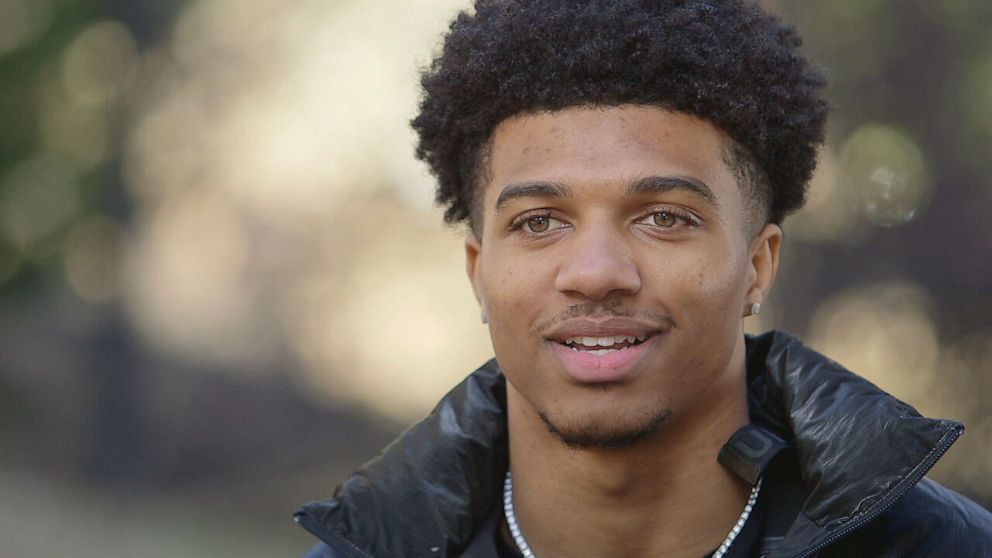
“I finally quit my job, started making some money, and that’s when I started taking it serious, like, ‘OK, this could be on some serious joint,’” Harris added. “And then it starts getting off, then I moved to [Atlanta], then I met Adrian and the rest of Valid Crib.”
Black creators and influencers like Harris and Harding have been pushing back against long-existing disparities and carving out space where their work is not only valued but respected.
“Sometimes, Black influencers, traditionally, haven’t gotten the brand deals because they don’t have the numbers,” said Taylor Lorenz, a culture and technology reporter for The New York Times. “I think it’s hard being an influencer. You basically make money by having people relate to you and a lot of white suburban kids feel like they can’t relate to young Black kids in America.”
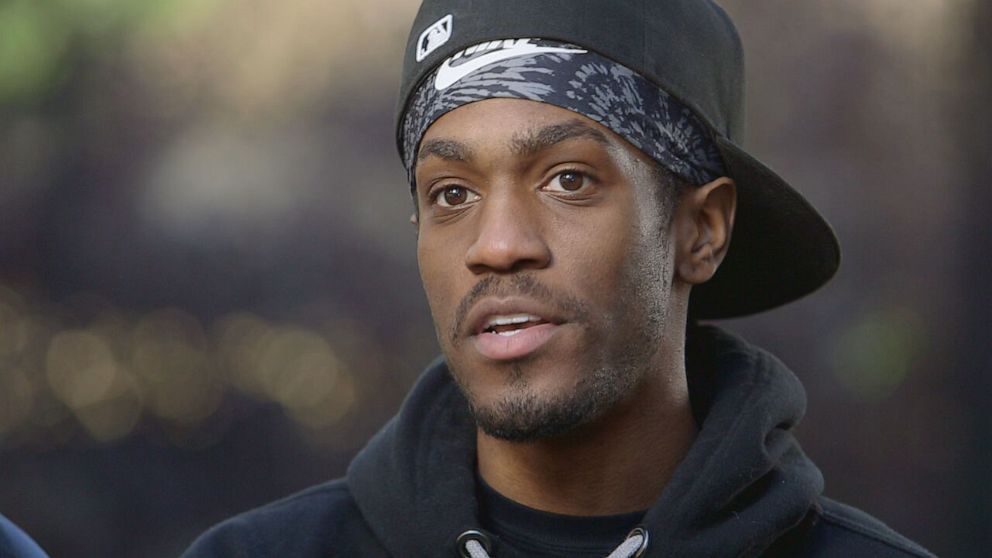
“They have traditionally sort of taken what they wanted from those communities, and maybe whitewashed it but not really paid homage or respect to the actual creators creating this stuff,” she added.
Dorsey says he’s seen these low numbers, particularly with TikTok, which Lorenz said breaks from other social media networks in that a person doesn’t need a huge following to go viral.
“You don’t have to have a single follower … because all of the feeds, all of the content, is distributed through this ‘For You’ page,” Lorenz said. “It’s this algorithm that plucks the best content from the whole app and uses technology to kind of determine who to show it to.”
The platform has come under fire for its algorithm in the past, such as last summer, when users called out that it had blocked the hashtags for Black Lives Matter and George Floyd.
At the time, the company said, “We acknowledge and apologize to our Black creators and community who have felt unsafe, unsupported or suppressed. We don’t ever want anyone to feel that way. We welcome voices of the Black community wholeheartedly.”
In a more recent statement to ABC News regarding the issues these black creators raised, the company said, in part, “We continue to remain committed to elevating and amplifying Black voices and creators in our community. We’ve launched the TikTok for Black Creatives program, a new incubator program that will invest in and support emerging Black creators. … We care about the experiences Black creators have on TikTok and continue to work each and every day to create a supportive environment for our Black community.”
Dorsey says a lot of the dance challenges people have seen blow up on TikTok were initially created by Black people before being co-opted by white people, who went on to monetize their viral success.
One such example is the “Renegade” challenge, which was created by 16-year-old Jalaiah Harmon in 2019. White creators went on to popularize the dance without giving Harmon credit.
More attention translates into more followers, which in turn leads to bigger and better business deals.
“The first way that influencers monetize is through ads,” Lorenz said. “They post ads for different products on their page. Another way that influencers monetize is through launching their own products. … They launch their own makeup, beauty clothing line, or they start selling, you know, even water bottles. Something that they consider synonymous with their brand.”
She went on to say, “A lot of influencers will use different platforms that kind of generate recurring revenue so that they know how much they’re getting each month.”
In Dorsey’s experience, someone who has 500,000 followers who can get 200,000 views per post could make anywhere from $2,000 to $5,000 for each ad.
Dorsey said he chose Atlanta for their home base because in Los Angeles they would “have to fight and fight for a [seat at the] table,” Atlanta offers them a chance to “build our own table.”
“Atlanta is definitely next, and we got a lot of potential here in Atlanta, too,” said Harding.
“It’s a Black Hollywood,” Harris added.
Najja Parker, an entertainment and culture reporter for the Atlanta Journal-Constitution, says the city is attractive for Black people who are seeking success in the entertainment industry but don’t want to go to LA or New York City.
“You can find similar or even better success here,” she said, subsequently listing several stars who hail from the city, like T.I., Killer Mike, Ludacris, Usher and Tyler Perry.
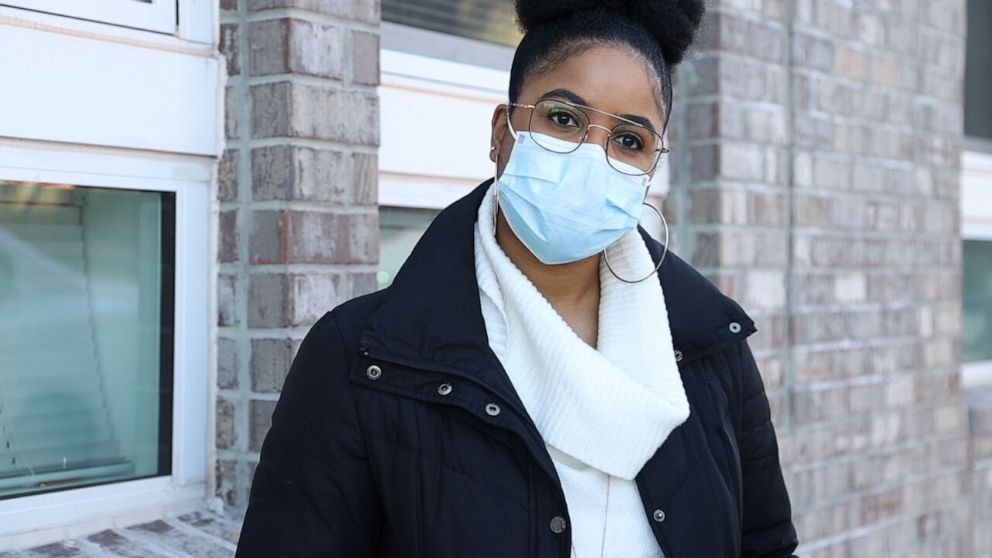
But in pioneering a new place to lift off, there’s also a lot of pressure to get it right, Dorsey says.
“We’ve got one shot at this,” he said. “Only one shot to show the entire world what we can do, and it’s not only just for us, it’s going to change it for everything in Atlanta.”
For what it’s worth, those who are managed by Dorsey say they wouldn’t be as successful as they are without him.
“He’s been looking out for me from the beginning,” Harris said.
“My whole goal for them,” Dorsey said, “is to elevate their true talent. … We’re in the course of changing history… When it’s over, and we get [what] we want, then there’s a great reward at the end.”




